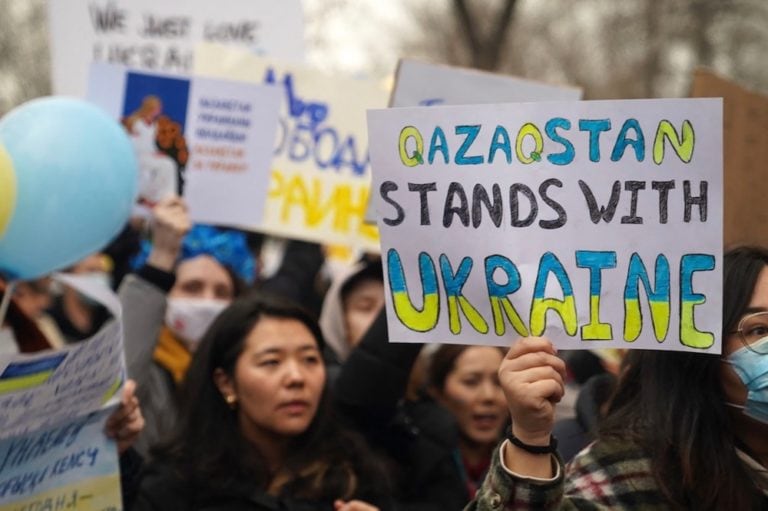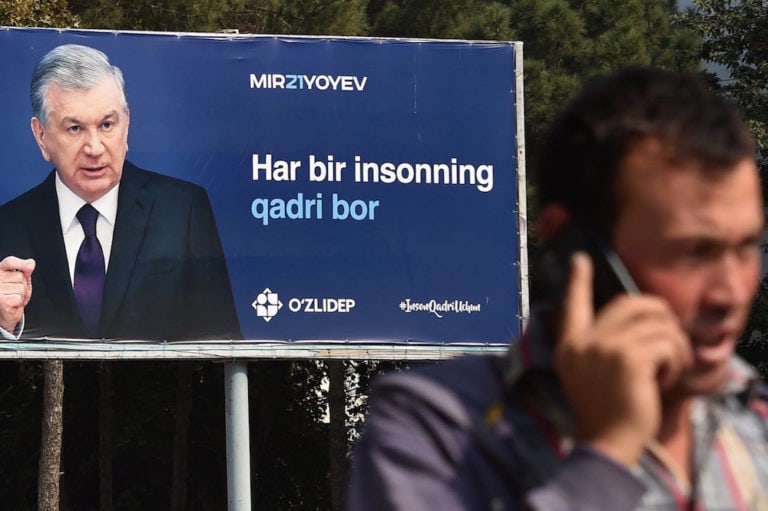After activist Dmitrii Tikhonov was brutally assaulted, the organisation says the government should take action to halt violence against human rights advocates.
(Human Rights Watch/IFEX) – New York, March 4, 2010 – The Uzbek authorities should thoroughly investigate and prosecute the men who violently attacked Dmitrii Tikhonov, a human rights activist and member of the Human Rights Alliance of Uzbekistan, Human Rights Watch said today.
Two men who were strangers to Tikhonov brutally assaulted him on the evening of February 23, 2010, as he was working in his garage. They choked him and hit him over the head with a metal object, leaving him unconscious. Neither his cell phone nor his wallet was taken. The police agreed to investigate only reluctantly and after several days had passed.
“There is no doubt that the vicious attack on Tikhonov was meant to intimidate him, to stop his human rights activity,” said Holly Cartner, Europe and Central Asia director at Human Rights Watch. “His assailants should not be allowed to get away with it.”
The Human Rights Alliance said it believes the attack was in retribution for Tikhonov’s human rights activity in his home city of Angren, about 100 kilometers from Tashkent in Eastern Uzbekistan. As a member of the Alliance since the beginning of 2008, he reports on human rights abuses regarding arbitrary police conduct, lack of due process, and more recently, the treatment of workers. He has also helped Angren residents file complaints against local authorities.
In the attack on February 23, the men entered the garage at about 8 p.m., Tikhonov told Human Rights Watch. One of them came up behind Tikhonov, began to choke him and said, “What, you’re writing on the internet now?” Tikhonov managed to free himself from the chokehold, at which point the other man hit Tikhonov in the head with a metal object. Tikhonov said that was the last thing he remembers before he lost consciousness.
A little while later, a friend found Tikhonov unconscious on the floor of his garage, and took him to City Hospital No. 1, where the examining doctor diagnosed a concussion and recommended that he be admitted to the hospital. Fearing for his safety, though, Tikhonov left the hospital and went into hiding for several days.
While at the hospital, Tikhonov reported the incident to the police, but the officers who took his statement initially discouraged him from filing a complaint. Tikhonov told Human Rights Watch he spent roughly three hours speaking to the officers before they agreed to file a report.
Several days later, on February 27, Tikhonov learned that the police had still not begun an investigation. Tikhonov submitted an official statement on the attack to the Angren police a second time, and reportedly they have since opened an investigation.
“By refusing to investigate attacks on rights defenders or to bring the attackers to justice, the Uzbek government has all but sanctioned such attacks,” Cartner said. “The government should finally make clear that no one can expect to enjoy impunity if they attack activists.”
BACKGROUND:
Human rights defenders across Uzbekistan are at risk of violent attacks in apparent retribution for their legitimate human rights activity. In April 2009, Elena Urlaeva, the head of the Alliance and a long time human rights defender, was beaten by two men as she was leaving her apartment with her 5-year-old son. The men kicked and punched her and told her she should have left Uzbekistan a long time ago.
In late 2009, a Human Rights Watch researcher, Tanya Lokshina, was assaulted on the street in Karshi as she was trying to meet with local rights defenders in advance of the December parliamentary elections. The woman who attacked her grabbed Lokshina by the hair and began to drag her down the street. Police then intervened, detaining Lokshina and accusing her of provoking a street fight. The attackers have not been identified or brought to justice in either case.


